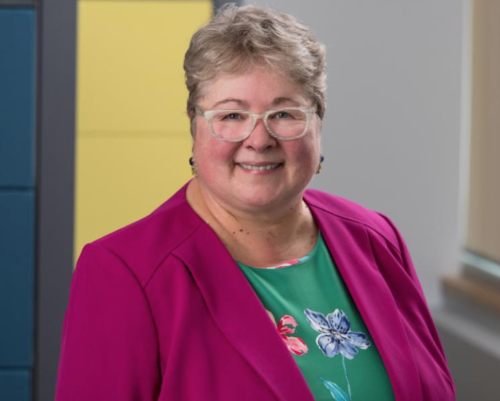To help address the ongoing shortage of nurses, the Nova Scotia College of Nursing (NSCN) is speeding up the process to accept applicants from a number of international countries as well as making practice regulations easier for Canadian nurses, moving to Nova Scotia from other provinces.
"We have a first-in-Canada solution to help address the shortage of nurses and the rapidly changing environment in which we all work, said Sue Smith, CEO and registrar at the Nova Scotia College of Nursing.

Sue Smith is CEO and registrar at the Nova Scotia College of Nursing (NSCN). Photo contributed.
Smith said there are two significant changes that will speed up the process, increase the number of nurses and decrease the paperwork involved. First, the Canadian Free Trade Agreement, which recognizes nurses from other provinces, will recognize and license nurse practitioners in Canada in 24 hours.
"Why are we doing extra paperwork if they're already licensed in that Canadian jurisdiction, then they meet the qualifications that we would have for Nova Scotia nurses," she said.
Second, international nurses coming from the Philippines, India, Nigeria, the United Kingdom, the United States, Australia and New Zealand will have their processing reduced from a year to a number of weeks.
Smith said that 87 per cent of international nurses come from the mentioned seven countries.
"Once everybody has their requirements, we can process them within 24 hours. Sometimes it will take a few weeks to get some of that paperwork that the nurses naturally will bring. But compared to a process that was a year or longer, reducing this to a matter of a few weeks is pretty significant," said Smith.
In 2022, the NSCN licensed more international nurses than in the last three years.
"On the first of March, we had licensed 44 International nurses, and in the queue in different parts of the process, we had another 257, bringing us to 301 nurses this year in progress. This will already bypass our numbers from last year," she explained.
On March 29, the Canadian changes will take place, and on May 1, the changes for the seven international countries will be implemented.
"It's a win-win. We're here to serve the public, maintain public safety, but still make sure that we're doing what we can to address what's going on in the healthcare system," said Smith.
Listen to the full CKDU interview below:


